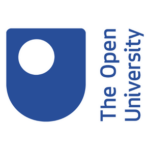
Home | Search All Courses | Online Degrees | Natural Sciences (Biology) (Honours)
The Open University
Online
Course
Part-time
During the Natural Sciences (Biology) (Honours) programme from The Open University, you’ll develop analytical and scientific literacy skills carrying out practical work and a research project.
Key features of the course
– Covers a contemporary understanding of a wide range of biology subjects with study of the scientific method throughout
– Develops biological data handling, some statistical analysis and varied presentation skills, with report-writing and IT skills
– Delivers practical work through a range of home and field investigations, as well as virtual and remote experiments delivered via our award-winning OpenScience Laboratory
– Includes the opportunity to develop fieldwork and practical skills through optional short residential schools
Skills for career development
By the time you achieve your qualification, you’ll be an adaptable graduate with a range of transferable skills that are highly valued in the labour market – such as analytical, numerical and communication skills, teamworking, problem solving and proficiency in using computers. You’ll also have a good understanding of where your strengths and interests lie, and be well prepared for your next step – whether it’s further study or employment.
Employers also look for evidence of experience of the workplace to support the skills gained through the degree. To succeed, graduates will need to be flexible and multi-skilled, with the ability to work in a multidisciplinary environment.
Career relevance
Science graduates are well placed to enter both scientific and non-scientific jobs. The logical, reasoned approach needed for science study is relevant to a wide range of financial, business and public sector employment, so science graduates – particularly those who have good communication and interpersonal skills – are in demand.
Employers include central and local government, the NHS, the water industry, food and drink companies, media and communications, the horticultural industry, multinational oil companies, the pharmaceutical industry, conservation bodies and universities – in roles such as:
– research and investigation
– product design and development
– analysis and diagnostics
– science information management
– science communication
– scientific sales
– exploration and extraction of natural resources
– health and healthcare related professions
– waste management, recycling and sustainability
– environmental management, protection and conservation
– teaching (science is a shortage subject at secondary school level, so there may be incentives to train as a physics, chemistry or maths teacher).
The Open University is unique. It is a public research institution that delivers 100% of its courses by online learning. It is the only university of its type in the UK
This course is at level 6 in the UK Qualifications Framework. Level 6 is higher level study often referred to as undergraduate level.
The Credit Accumulation and Transfer Scheme (CATS) is a way to talk about the time and effort a course requires. One credit (or CATS point) equals 10 hours of learning effort.
UK Study Online Scholarship Draw - 1 x £1,000 & 2 x £500 Towards Your Tuition Fees
To register for the scholarship draw, you need to sign up for the ukstudyonline.com newsletter and updates. You can find more details here.
Use these links to view the full rankings (Opens in a new window)
ARTU Ranking (Out of 45 UK universities included in their table)
QS World University Rankings- QS Quacquarelli Symonds rankings data– (CC BY-NC-ND 4.0)